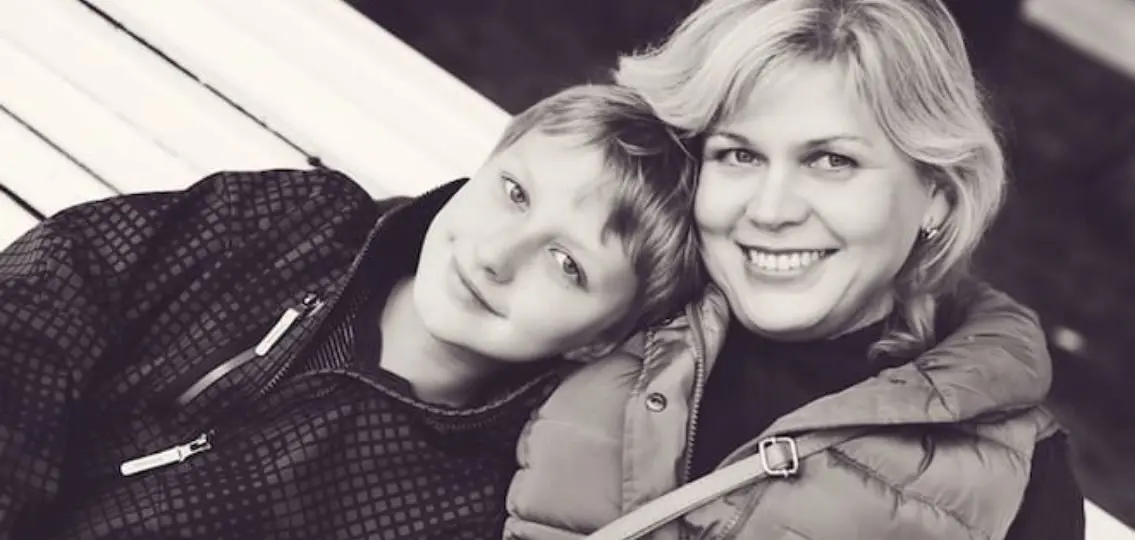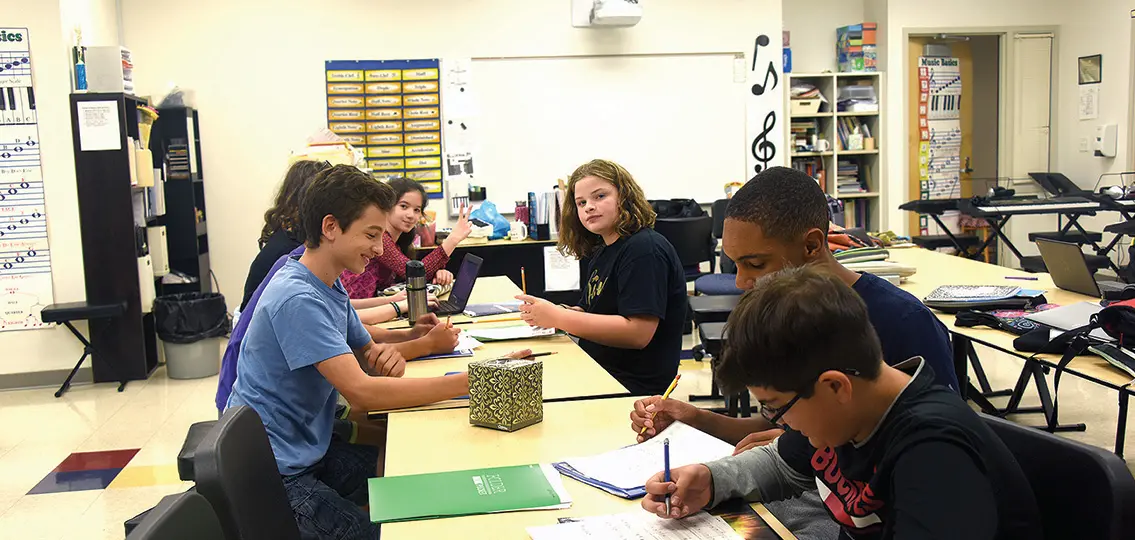Aimee Wells, who lives in the San Francisco Bay area, has a son in seventh grade—and a feeling in her gut like she’s riding a rollercoaster. “There have been a lot of ups and downs lately,” she confesses. “At times my son is still like a very sweet little boy. Other times, he flies off the handle.” Moreover, her formerly “extremely open” boy now barely tells her what’s going on at school.

Does any of this sound familiar? Aimee’s son is exhibiting some of the typical emotional characteristics of middle school students. When you consider the pressure kids this age are under, it’s no surprise. In addition to coping with stepped-up academic demands—not to mention puberty—middle-schoolers are tackling major social goals. It’s all part of middle school development, but it’s certainly not easy for them or for us!

Behaviors You Will See in Middle School:
1. A longing to belong
Middle school development involves intense self-awareness: “Kids are suddenly conscious of whether they measure up to other kids in terms of intelligence and athletic ability, and whether they fit in,” says Phyllis Fagell, a licensed clinical professional counselor in Washington, D.C. and author of Middle School Matters. Your job? “Explain that everybody feels that sense of not belonging at first,” says Fagell. Share your own stories about navigating this phase, and reassure your child that it gets better.
2. Friendship flip-flops
As your child attempts to find his tribe, don’t be surprised if he breaks away from old friends and gravitates toward new ones. “Kids drift in and out of social circles,” says Srithai. Make your home a hangout-friendly space. You’ll get to monitor your child’s new friendships, which is important since you want to know who’s influencing them, says Srithai. He also recommends encouraging your child to get involved in a club, sport, or community activity to work on social skills and meet new people.
| [adrotate banner=”126″] |
3. Bullying, gossiping, or cheating
It’s horrifying to ponder your child doing any of these things, but “middle-school kids are exposed to more negative social influences than before,” Fagell says. Your best strategy is to head off these behaviors by talking about them before they happen. For instance, try saying, “I know it’s fun to gossip, but you know what feels even better? Being someone who other people can trust.” You’ll be letting your child know where you stand, so they can take a stand later on.
4. A feeling of rejection
Now is when things like competitive sports and social cliques begin; you’ll likely find yourself consoling your child for not making a team or not getting a party invite. “Coach your child around the notion they might not always make the cut,” advises Srithai. “And emphasize how they can react positively when faced with adversity.” Fagell suggests brainstorming together about how your child can move on: “If she didn’t make the team, maybe she can do club or rec sports instead. Or if she didn’t get invited to the party, maybe she can invite someone for a sleepover.”
5. One-word answers
Ask how school was, and you’ll probably hear “fine.” Why is your child not opening up? It’s actually a sign of healthy development, says Fagell. “He’s looking for you to respect that he needs more privacy and autonomy,” she explains. But you don’t have to settle for silence.

“Ask open-ended questions,” Srithai urges. Try something like “What was your favorite part of the day?” Share details of your own day, too, so the conversation is a two-way street. And carve out a few minutes a day to sit and talk: Chances are you’ll get more insight into your middle-schooler’s ever-changing, fascinating world.”




